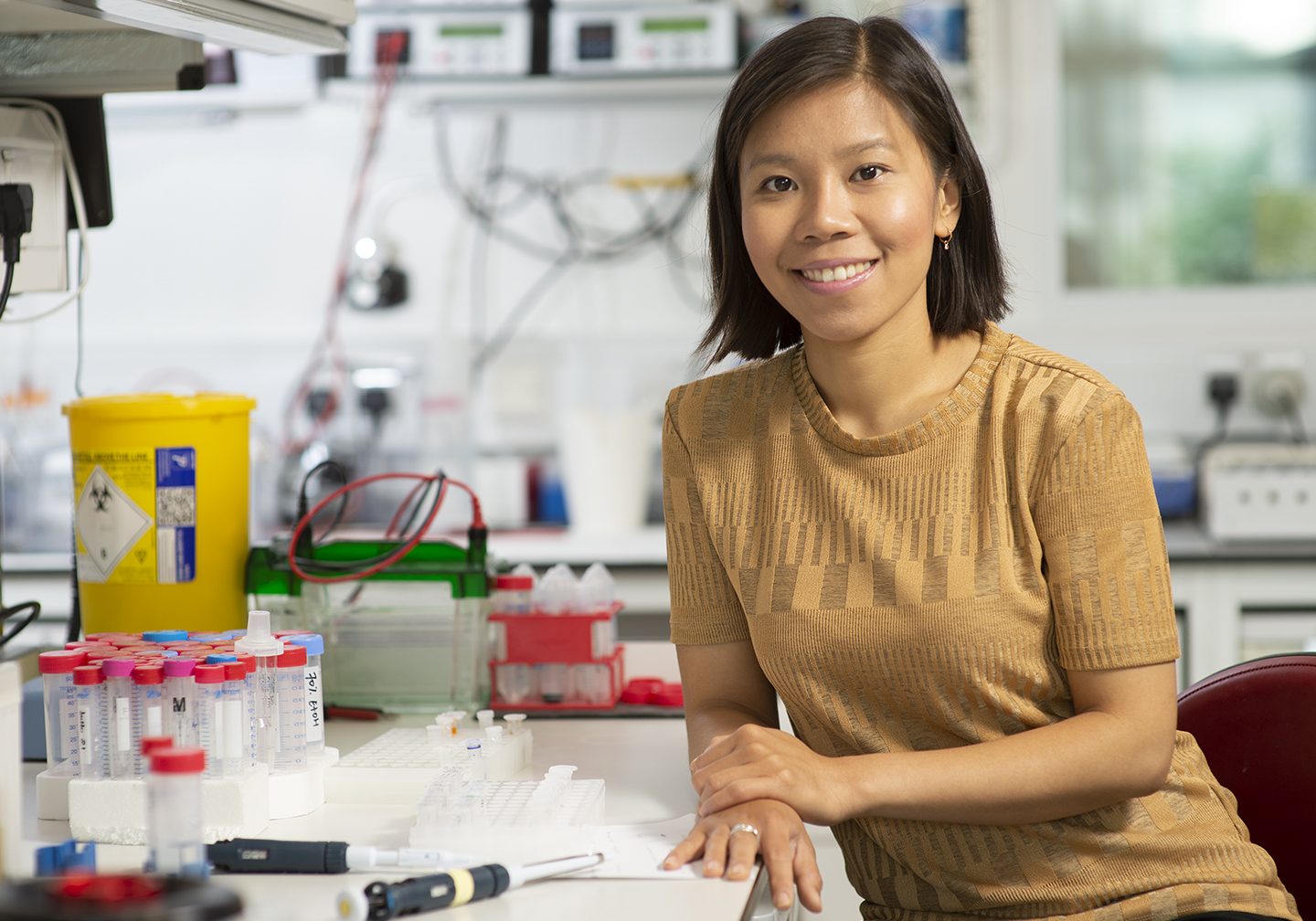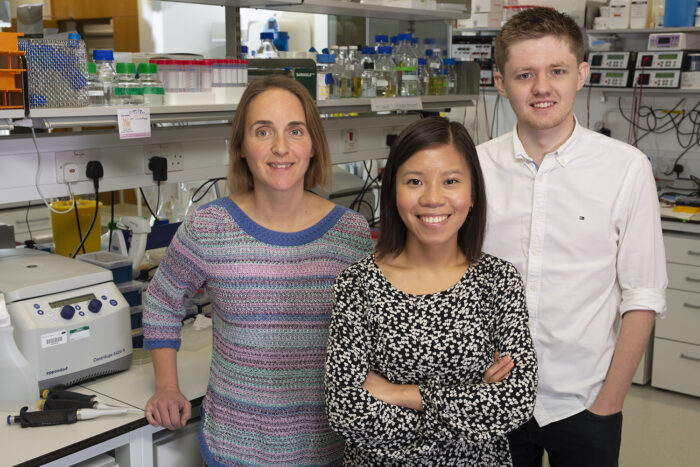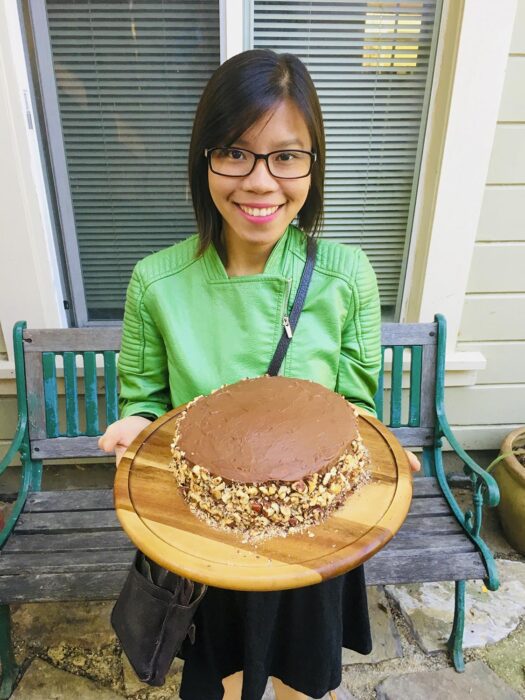From the scientist’s view: a conversation with … Kelly Nguyen

Kelly Nguyen is a Group Leader in the Structural Studies Division at the LMB.
She did her undergraduate degree in Australia at the National University, and then moved to the LMB as a PhD student. She then went to the US for a postdoctoral fellowship. She has recently returned to the LMB as a Group Leader.
Kelly’s research focuses on a region of the chromosome, called telomeres, which has strong implications for cancer and ageing.
We recently talked to Kelly about her career path and views on being a scientist.
What inspired you to choose this particular area of science/research?
To be honest, I never considered science as a career as a kid. It was how my journey leaving Vietnam came about … my inspiration was actually to go overseas to study one day. And then when I went overseas, I realised that science could be a career. That’s how I came to pursue science in university, and also then a PhD following that. So it was not really a straight line. I actually did chemistry at university, I didn’t do biology. But, at the end of my undergrad, I had to decide what to do for my honours research. I did a summer research placement in structural biology and various other projects in chemistry, and I realised that, even though biology wasn’t what I studied, it was what I liked doing most in the lab. I also went to a talk by Tom Steitz – a very famous Nobel laureate, though that was before he earned the Nobel Prize. The talk was so amazing, that really made me feel like this is what I want to do for the future, and that’s how I changed to molecular biology.
What is the coolest thing about your work/research?
The coolest thing about what I do is being able to see things that nobody has ever seen before. That’s the nice thing about doing structural work: if you’re the first one to solve the structure, then you’ll be the first one to have seen it.
What is special about working at the LMB?
There are a few things that are special about working at the LMB. The first being that, scientifically, it is a very inspiring environment. There are so many like-minded and very motivated people coming from all over the world to come here and really seek the truth in science, and that’s something that’s really rare. This really pushed me to work harder, to think about things more broadly, and to take more challenging projects that I wouldn’t have thought about. The second thing is about the people who work here. I think it is very unique because 30% of our people are non-scientific staff, and they really make this place run. I’m really fortunate to be back. Coming to work and seeing all these people who are really trying to do their best to do whatever they do, that is something that I think is very special about this place and I really appreciate that.

Do you have a ‘LMB hero’? How has their work influenced you or made your research possible?
My LMB hero would be Max Perutz, the reason being that he’s also the hero of my PhD supervisor [Kiyoshi Nagai] who talked about Max a lot in daily life and how he pursued science. There’s a phrase that Max Perutz said that I always take every time I do research and think about my research: ‘In science, truth always wins.’ That sits in the Max Perutz Lecture Theatre here. I look at it and I always think, ‘this is how I should pursue science, I should find the truth.’
What key piece of advice would you like to pass on to future scientists/GLs?
There are two key pieces of advice that I would like to pass on. One is to stay positive. Take little successes as your daily happiness. You often spend so much time on research, and successes only come once in a while so you really have to take pleasure in these little daily successes. And the second is to choose your mentors well. For me, that has made a big difference for my career. I don’t think I would be here without these mentors who supported me, who really believed in me. And even after I left their lab or left their classes, they still continued to support me, and that is the thing that made all the difference.

What is your favourite thing to do away from science?
I had many hobbies as a kid growing up outside of studying, and I’m still keeping some. I love baking, and do it a lot. And I love drawing: art was one of my other alternatives as a career option – I was considering being an architect. And I love reading biographies also.
Kelly was interviewed for the LMB Alumni Newsletter on 29th November 2019.
Further references: